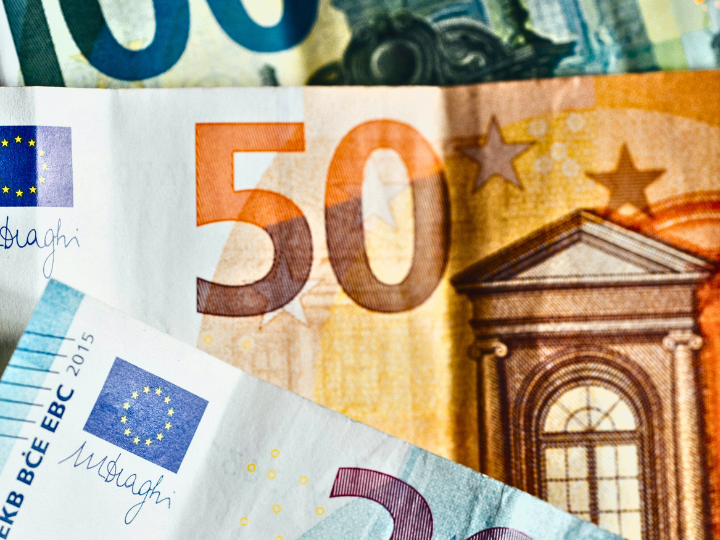by Jonathan Packroff
While all eyes were on Xi Jinping’s visit to Europe earlier this week – with China’s state subsidies to green industries particularly in the spotlight – leaders in Berlin debated how the global transition towards climate neutrality affects the economy.
Speaking at a summit for “Global Solutions” in Berlin on Tuesday, German Chancellor Olaf Scholz (SPD/S&D) called the transformation of economies towards climate neutrality “irreversible”.
“There cannot and will not be a return to the fossil era,” he said.
However, he highlighted the transition’s large investment needs will be the “biggest problem” countries will be facing.
“UN experts estimate that we will need €125 trillion in global investments in order to be climate neutral by 2050, and that estimate alone goes to show that public funds provided by classic industrialised countries will not suffice, never”.
Notably, the tone he struck on Tuesday was in stark contrast with his previous triumphant statements from March 2023, when he raised some eyebrows by putting forward a bold prediction: Germany, he said, would be “facing a phase of major [economic] growth”.
This, he continued, was due to the country’s ambition to reach climate neutrality by 2045, which would see “hundreds of billions of private sector investments” spark growth “the likes of which we have not been used to for many decades”.
At the time, while Scholz hoped for a new Wirtschaftswunder (economic miracle) as the one enjoyed by the country during the post-Second World War reconstruction of the 1950s and 60s, economists were quick to point out a visible flaw in his argument.
The transition to climate neutrality indeed entails huge fresh investments in things like electricity generation, new-generation heating systems, vehicles, green factories and the likes – but it also brings with it the closure of old carbon-intensive plants and businesses.
Green investments “don’t necessarily bring growth because sometimes it simply [consists of] the replacement of a blast furnace that makes fossil steel, for electrification, to make green steel,” Philippa Sigl-Glockner, member of Scholz’s SPD and head of think-tank Dezernat Zukunft, told Euractiv in April last year.
In economic terms, the green transition consists in not much more than replacing an existing capital stock of factories, buildings, power plants, etc., with a new one.
Having quietly abandoned his rhetoric on a new green Wirtschaftswunder – a sensible move, given the conspicuous economic slump the country has gone on to experience since his 2023 remarks – Scholz joined in the broader, more downbeat debate around sourcing investment to fund the transition at a global scale.
Speakers at Tuesday’s event indeed pointed out that there is not much leeway for additional contributions.
Heiko Thoms, state secretary in the finance ministry of coalition leader Christian Lindner (FDP/Renew), ruled out borrowing beyond the country’s debt brake in order to step up international climate finance. Lindner himself this week called upon his fellow ministers for foreign affairs and economic cooperation and development to enact further cuts in their draft budget plans for 2025.
Although from a very different political stance around the role of public investment, Scholz too admitted that private investments will be needed – and in large sums.
Reflecting back on the UN €125 trillion estimate, he said: “This estimate alone shows that this will never be achieved with public funds from the traditional industrialized countries alone.”
“Not to be misunderstood: countries stand by their responsibility to provide funds to reduce CO2 emissions and adapt to the effects of climate change. But even a multiplication of public funds – which is simply unrealistic – would not get us where we want to go.”
“To be successful, climate financing worldwide must focus much more on mobilising private investment. “It’s the economy, stupid” – this sentence also belongs here,” Scholz said, citing the famous slogan from the Bill Clinton 1992 US election campaign.
However, if mobilising private investments doesn’t prove difficult enough in Europe – given the political frictions that the EU’s main means to channel funds, the capital markets union and its carbon pricing scheme, already generate today – globally, the challenge is at a fundamentally different scale.
There is an “unfair labelling of Africa as a risky investment, which means that the cost of capital that comes to the continent […] is ten, sometimes twelve times higher than anywhere else,” Amani Abou-Zeid, energy commissioner of the African Union, told the conference.
“What private sector in [its] right mind would come into that?” she asked.
Scholz’s deputy and Minister of the Economy Robert Habeck (Greens), meanwhile, seemed more upbeat as he talked at the same conference a day earlier.
Seemingly attempting a rehabilitation of Scholz’s 2023 argument, he said: “Of course, some are right: If you replace an existing capital stock, let’s say a coal power plant, through renewables, you save CO2, but you’re not automatically creating more growth, more wealth”.
“But this is static thinking,” he added.
When cable telephones were replaced with mobile ones, it created new possibilities like data sharing, filming, and new forms of communication, he said. “Think about all the business, the ideas and developments that happen because we are now using mobile phones”.
Similarly, the new energy world could also create “new business opportunities”, he added, citing the example of bi-directional charging for electric vehicles, which lets consumers use their cars as energy storage to help balancing the fluctuating wind and solar power supply.
“We can see now in all major economies, also in the growing economies of the global south, and also in Germany, […], the dynamic is taking up speed,” Habeck said. “We have to stay on the course”.
Chart of the Week
Investments in clean energy have slowed over the past few years — with most of the increase occurring outside of the Global South.
As our Chart of the Week shows, over the period 2018-2023 clean energy investments grew 12% in emerging market economies, compared to 64% in advanced economies and 70% in China.
In terms of net spending, emerging markets’ clean energy investments also lag behind the rest of the world, with a total expenditure of just $271 billion in 2023. This is less than half the amount invested in China ($591 billion) and less than a third of the outlay in advanced economies ($872 billion).
*first published in: Euractiv.com




 By: N. Peter Kramer
By: N. Peter Kramer

